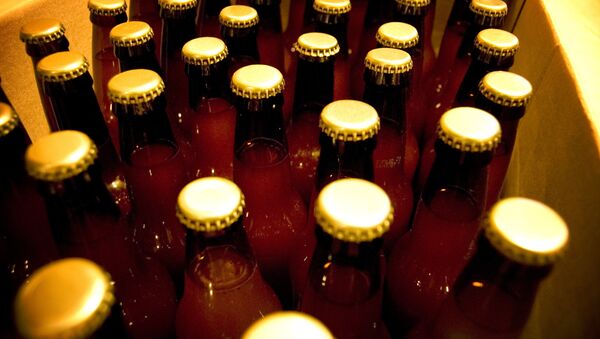The Swedish government has raised alcohol taxes with the aim of kickstarting the economy and funding the country's military strategy, that includes a major defence beef-up.
Together with an increased tax on cigarettes, smokeless tobacco snuff and nicotine products, the tax hike is expected to bring in around SEK 1 billion ($110 million).
According to the Swedish finance minister, the tax hike will help fund increased defence spending.
“You can feel that you are doing a good deed having your Friday beer”, Finance Minister Magdalena Andersson told the Expressen newspaper.
The new prices will come into effect from 1 January 2023, five years after the most recent alcohol tax hike.
“The alcohol tax isn't indexed at all, so if you don't raise it, the tax is eroded and, after all, we don't have lower ambitions for public health,” Andersson told Expressen.
The sale and taxation of alcohol has historically been strictly regulated in Sweden, with beverages with an alcohol content of above 3.5 percent only being available from the state-owned monopoly Systembolaget. Taxes already account for the majority of the retail price, with the alcohol tax making up around 32 percent of the final sale, along with VAT at around 20 percent, according to Systembolaget. This makes Sweden's alcohol market one of the most expensive in Europe.
A bottle of wine is estimated to increase in price by around a krona ($0.11), liquor will cost several kronor more, and beer 0.25 more (2 cents).
So far this year, amid the COVID-19 pandemic and closed borders, sales of beer at Systembolaget have skyrocketed. Between January and August, Systembolaget sold 26.5 million more litres of beer and cider than during the corresponding period in 2019, earning SEK 300 million ($34 million). Sales of wine and liquor grew as well.
The tax hike has already been slammed by professionals, including Anna-Karin Fondberg, CEO of Sweden's breweries. In her opinion piece for Aftonbladet daily, she noted that while the policy of high taxes has indeed brought high revenues at the times of coronavirus restrictions, this effect will wear off as soon as the borders with other countries are re-opened.
Fondberg stressed that the hike is a “wrong way to go” as it will “shatter the Swedish monopoly”, spurring Swedes to buy cheaper alcohol abroad, in countries like Denmark, Finland and Germany.
It has already been agreed that the SEK 5 billion hike will be paid with a bank tax. The taxes on alcohol and tobacco are intended to partially finance the increased funding in 2023.
Since the end of the Cold War, the Swedish Armed Forces have gradually reformed from a large force able to handle an invasion to one focused solely on international efforts. This trend has manifested itself in the size of the budget (2.4 percent of the GDP in 1990, 1 percent in 2018) and the number of troops (180,000 in the late 1980s vs. some 20,000 today). In recent years, however, the trend has been reversed, amid a return of conscription and a re-militarisation of the strategic Island of Gotland in the Baltic Sea.





